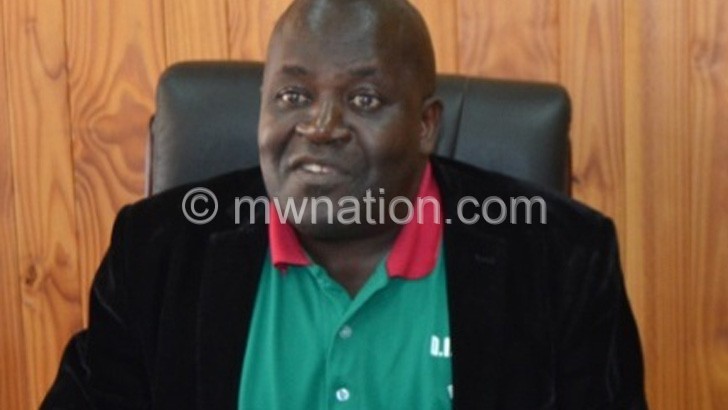MHC given 4 days to repair Area 18 sewer
A joint Parliamentary Committee on Agriculture, Irrigation, Natural Resources and Climate Change, has given Malawi Housing Corporation (MHC) four days to repair the broken sewer lines in Area 18 residential estate in Lilongwe or face unspecified drastic action.
Natural Resources and Climate Change Committee chairperson Werani Chilenga issued the ultimatum to MHC yesterday as a way forward to contain the issue that has instilled fear to the public after the mixing of sewer water and that supplied by Lilongwe Water Board (LWB) lines for domestic consumption.

He said: “Looking at the urgency and importance of the matter, as joint committees, we urge you to tak
e action over the sewer lines that are still open as we are talking in Area 18.
“That means you have from today [Thursday] up to Monday [August 14] to maintain the problem or else a drastic action which we can not disclose now will be taken.”
Three weeks ago, Malawians woke up to a rude awakening after some Area 18 residents pressed a panic button and complained that LWB water had been mixed with sewage.
Several organisations have demanded action following the development, saying it is a health hazard.
LWB chief executive officer (CEO) Alfonso Chikuni told The Nation soon after the incident that the problem was being rectified and that the water was potable. However, he observed that people are still afraid to drink it.
In the wake of the development, the Parliamentary Committee on Natural Resources and Climate Change summoned all the country’s five water boards, MHC, city councils, Ministry of Health and Ministry of Agriculture, Irrigation and Water Development to a round table discussion at the Parliament Building to find a lasting solution to the management of the sewerage systems in the country.
During the meeting, which lasted almost five hours, LWB was cleared as not responsible for the mix up with the blame going to MHC, the landlord of the Area 18 residential estate, as being responsible for managing sewer lines.
In his presentation, MHC deputy CEO Garnet Gwembere attempted to shift the blame to LWB, but he was later corrected by the committee that MHC was to blame because it had the master plan for the system in its houses which was never handed over to Lilongwe City Council (LCC) or LWB.
MHC said legally, LWB was supposed to own and manage the sewers according to the 1995 Water Works Act which gives power to the board to run the sewer system, but without the master plan—still in the custody of MHC—it was difficult for LWB to manage the sewer system.
After the meeting, Gwembere told journalists that his institution will do its best to meet the set deadline as people’s lives are at stake.
“From here we will go and discuss this at our offices, we will rectify the problem to make sure such thing should not occur again, we don’t feel guilty but we just have to admit a problem happened,” he said.
LCC, which said is responsible for the management of sewer lines in the city, distanced itself from the lines that burst underground, saying it only manages the big pipes.
In his presentation to the committee, LCC CEO Charles Makanga said the council’s pipes were in good condition and secure.
Chief director of environment and climate change in the Ministry of Natural Resources, Energy and Mining, Yanira Ntupanyama, said the roundtable discussion was handy and they will ensure implementation of the Water Works Act of 1995 to empower the water boards to manage the sewer lines in the country n





